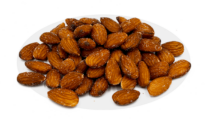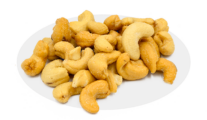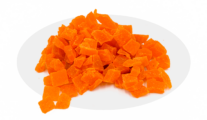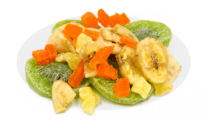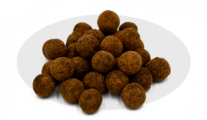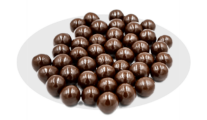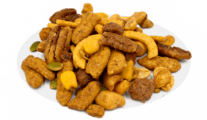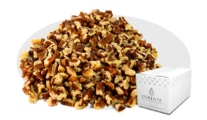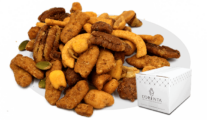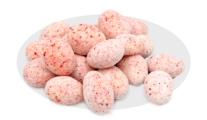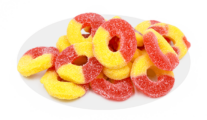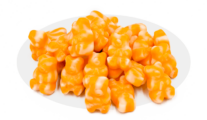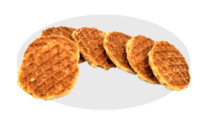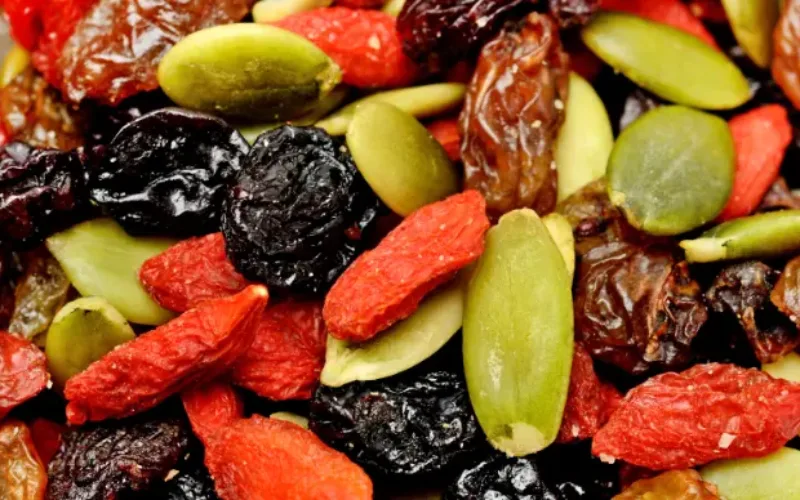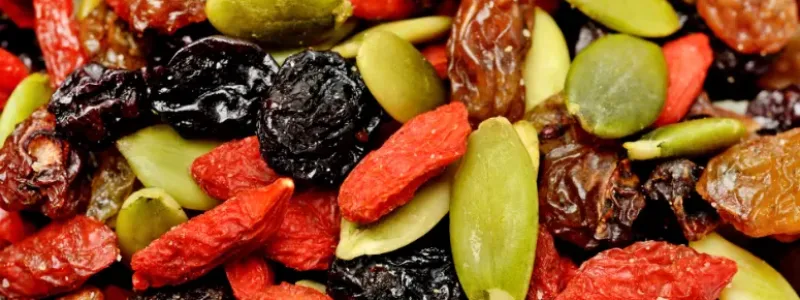Written By Sam Henselijn
You’ve probably heard that licorice has some health benefits. But can dogs eat licorice candy? It’s actually true that some forms of licorice can indeed help fight colds, sore throats, and even indigestion. The thing is, the benefits come from the actual licorice root extract, which, in candy, is present only in very small amounts. All the other ingredients used to make any type of sweet treat meant for humans can be extremely dangerous to dogs.
Keep reading to understand more about the risks of giving licorice to your furry friend.
Can dogs eat licorice?
The short answer is no. And before you ask, the type of licorice doesn’t matter. If anything, red licorice is actually worse than the black variety in one sense. That’s because it doesn’t contain licorice extract at all, which is the single ingredient that could be beneficial to your health. For dogs, however, even licorice extract could be dangerous.
Black licorice, red licorice, licorice-flavored jelly beans, licorice Twizzlers… While these are all delicious and perfectly safe for human consumption, dogs really shouldn’t be allowed any type of candy.
Why is licorice bad for dogs?
All types of licorice candy offer huge risks for dogs. Black licorice, while potentially beneficial to humans in some aspects, can be toxic for them. That’s due to a compound called glycyrrhizin, which causes spikes in blood pressure.
As for red licorice, it really isn’t much better. While they aren’t
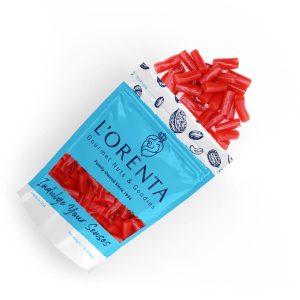
flavored with actual licorice extract, there’s really no health benefit there. In general, giving any type of sugary treat to your dog is just a terrible idea. Your pets are extremely susceptible to even the smallest amount of sugar. In the long run, it can lead to weight gain, diabetes, tooth decay, and other health problems.
Is xylitol poisonous to dogs?
Another thing to be aware of is that many candy companies use xylitol. This artificial sweetener is actually poisonous to dogs. Consuming even a small bit of it can lead to liver failure, severe hypoglycemia, and even death.
What to do if your dog ingests licorice
It’s always better to be safe than sorry. If your dog accidentally ingests a piece of licorice candy, don’t panic. Changes are they’ll be just fine. Monitor them closely and be on the lookout for these symptoms:
- Vomiting
- Diarrhea
- Lethargy
- Abdominal pain
- Difficulty passing stool
Note: If any of the above occur within 24 hours after the ingestion of the candy, call your vet immediately.
Final Thoughts
In doubt: don’t share any human food with your dog. A dog’s digestive system is different from a human’s. What we eat has a tendency to be too rich and fatty for dogs to be able to properly digest. With candy, especially, the risks are even bigger since many ingredients could potentially be toxic to them.
Licorice candy is a big “no-no” for pets. Pure licorice root, however, is another story. It can be a powerful natural remedy for dogs. Just make sure that you are using it appropriately to avoid any potential adverse reactions. When in doubt, don’t just medicate your dog on your own account. Always ask your veterinarian for guidance. They’ll be able to tell you if a supplement can be safely used to benefit your dog’s health.
Licorice candy, while beneficial to humans for its potential health benefits from licorice root extract, is not safe for dogs. Here’s what you need to know about dogs and licorice candy:
FAQs for Can Dogs Eat Licorice Candy
Can dogs eat licorice candy?
No, dogs should not eat any type of licorice candy, including black or red licorice, or licorice-flavored jelly beans. These are safe for human consumption but can be dangerous for dogs.
Why is licorice bad for dogs?
Licorice candy contains glycyrrhizin in black licorice, which can cause spikes in blood pressure in dogs, making it toxic. Red licorice and other sugary treats can lead to weight gain, diabetes, tooth decay, and other health problems in pets. Additionally, many candies contain xylitol, an artificial sweetener that is poisonous to dogs and can cause liver failure and death.
Is there any safe way to give licorice to dogs?
Pure licorice root, not the candy, can be a powerful natural remedy for certain conditions in dogs, but it must be used appropriately to avoid adverse reactions. Never medicate your dog with licorice root on your own. Always consult a veterinarian to ensure it’s safe and get guidance on the proper dosage for your dog’s specific health needs.
What to do if your dog ingests licorice?
If your dog accidentally eats licorice candy, monitor them for symptoms such as vomiting, diarrhea, lethargy, abdominal pain, or difficulty passing stool. If any occur within 24 hours of ingestion, contact your veterinarian immediately.
Sam Henselijn Author’s Biography – Meet L’Orenta Nuts CEO
Copyright 2024 L’Orenta Nuts
L’Orenta Nuts proudly holds the SQF food safety certification, symbolizing our unwavering dedication to upholding the highest standards of food safety and quality. This certification guarantees that our products undergo rigorous scrutiny, ensuring transparency, traceability, and adherence to global food safety regulations for the utmost consumer confidence.
L’Orenta Nuts has the HACCP (Hazard Analysis and Critical Control Points) certification is a systematic approach to identifying, evaluating, and controlling food safety hazards. It ensures that food products are produced and handled in a manner that minimizes risks and complies with safety standards.
Our GMP (Good Manufacturing Practices) certification ensures that a manufacturing facility adheres to comprehensive quality and safety standards while producing pharmaceuticals, food, and other consumer goods, promoting consistency, quality, and compliance with regulatory requirements.
L’Orenta is an FDA-approved manufacturing facility and has met the rigorous standards set by the U.S. Food and Drug Administration. It demonstrates compliance with regulations, ensuring the production of safe and high-quality food products.


